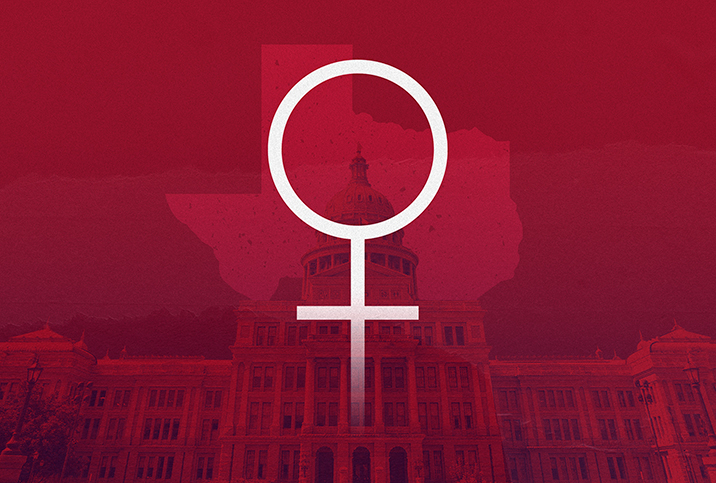Federal Judge Temporarily Halts Near-Total Abortion Ban in Texas

Update December 10th: The Supreme Court ruled to allow abortion providers in Texas to sue some state officials in federal court. They refused to block SB8 in the meantime.
Update October 15th: The 5th U.S. Circuit Court of Appeals agreed in a 2-1 decision on Thursday, October 14th, to let enforcement of the near-total abortion ban continue.
Update October 11th: On Friday, October 8th, the 5th Circuit Court of Appeals ruled to again temporarily allow enforcement of Texas’ near-total abortion ban. Because the wording of SB8 allows for retroactive endorsement, anyone who helped someone get an abortion while the law was blocked can be sued.
Five weeks after the passing of Senate Bill 8 (SB8), the near-total ban on abortion in Texas has been temporarily blocked by a federal judge as part of the Biden administration's lawsuit against the state.
On October 6, 2021, U.S. District Judge Robert Pitman, located in Austin, issued an order to halt enforcement of the law, which would allow private citizens to sue anyone involved in aiding or abetting an abortion. The ruling additionally stops state court judges and clerks with the power to enforce the law from doing so.
"People seeking abortions face irreparable harm when they are unable to access abortions; these individuals are entitled to access to abortions under the U.S. Constitution; S.B.8 prevents access to abortion; a preliminary injunction will allow—at least for some subset of affected individuals—abortions to proceed that otherwise would not have," Pitman stated in his 113-page ruling.
The state of Texas followed Pitman's decision with a notice of appeal and will likely seek an emergency notice of stay in the Fifth Circuit Court of Appeals. The structure of SB8 allows for litigation against violators of the law even in the case of a temporary stay, which means health providers may be hesitant to resume abortions, as enforcement could once again be reinstated.
The U.S. Justice Department joined several legal challengers last month with its lawsuit against the state of Texas. At last week's hearing to decide whether or not Pitman would halt the law's enforcement, the state of Texas argued that the case should be dismissed because SB8 does not affect the federal government.
The United States asserts that it is 'injured by Texas's attempt to circumvent its obligations under the federal Constitution' and 'thwarting mechanisms of judicial review provided by federal law.'
The U.S. government argued SB8 directly violates the supremacy clause—the principle that federal law takes precedence over state law in conflicts between the two—and said: "S.B.8 unconstitutionally impairs the United States' responsibilities under federal law to provide abortion-related services in certain circumstances...Second, the United States asserts that it is 'injured by Texas's attempt to circumvent its obligations under the federal Constitution' and 'thwarting mechanisms of judicial review provided by federal law.'"
Pitman's ruling agreed with the U.S. government, stating it is "substantially likely that S.B.8 violates the fourteenth amendment," and adding that the bill law placed an undue burden on abortion-seeking women and the inundation of Texas patients into surrounding states overburdened available abortion services.
While Texas argued that the ruling would increase the number of suits the government would file against states, Pitman disagreed, stating this was an exceptional case for a number of reasons.
He also stated that his ruling was in part to address the fear of other states following suit with similar laws of their own and to discourage states on the other side of the political spectrum from using "a similar tactic to ban or impermissibly limit another constitutional right."
"From the moment S.B.8 went into effect, women have been unlawfully prevented from exercising control over their lives in ways that are protected by the Constitution," Pitman said. "That other courts may find a way to avoid this conclusion is theirs to decide; this Court will not sanction one more day of this offensive deprivation of such an important right."

















